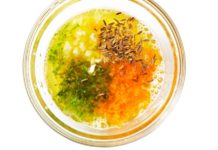LONDON — While the world was waiting for Oprah Winfrey’s interview last month with Prince Harry and Meghan, Duchess of Sussex, the eyes of many Britons were on someone else: Prince Philip, Harry’s grandfather, who had been hospitalized several weeks earlier with a heart condition.
On the front pages of British newspapers in February, Prince Charles had been pictured leaving the bedside of Philip, his father — the son’s eyes bloodshot as he was driven away. The Daily Mail castigated Harry and Meghan for comments about their departure from their royal roles, which the tabloid cast as disrespectful in light of Philip’s illness. “Have They No Respect?” a headline screamed.
That period of national concern over Philip’s health lent the royal family sympathy during an unusual dust-up within the institution, one that pitted brother against brother as Harry, in the interview with Ms. Winfrey, accused his family of racism and emotional abandonment.
With that conflict still raging, Philip’s death on Friday at age 99 opened a new and uncertain chapter in the turbulent life of the House of Windsor. It has the potential to mend fences, or to sow deeper discord.
Foremost in the minds of royal watchers is the private funeral being planned for Philip. Will Harry reunite with his brother, Prince William, after a monthslong feud? Will Meghan attend?
“Harry will come home, and a meeting between the brothers and perhaps, with luck, a reconciliation over their dead grandfather could be a possibility,” said Penny Junor, a royal historian.
Or not.
“It’s going to go one way or the other,” Ms. Junor said. “There’s a sort of war going on within the family, and being played out in public. It’s been everything the family doesn’t want.”
The heating up of those tensions during Philip’s hospitalization created an awkward split screen, which defenders of Buckingham Palace used to attack Harry and Meghan for doing anything that could detract attention from the patriarch’s health.
In the couple’s explosive interview, Meghan referred to Philip’s illness after Ms. Winfrey asked about regrets. She said she had woken up that very morning to a note saying that Philip had been hospitalized.
Nevertheless, she and Harry offered a painful account of their life within “the Firm,” the family institution that Philip spent much of his life trying to preserve.
They said members of the family had expressed concern about how dark the skin of the couple’s then-unborn child, Archie, would be. Meghan said her efforts to seek mental health treatment had been rebuffed by palace officials, who worried about potential damage to the monarchy. And Harry said that his own relatives were “trapped,” speculating aloud about whether they, too, were wrestling with painful thoughts.
The comments reverberated through Britain, touching off frank conversations about racism and the country’s colonial legacy. Philip’s own history of bigoted remarks was often cited as an example of anachronistic attitudes that were said to prevail within the family.
So concerned was Harry about how the interview would affect Philip and Queen Elizabeth II that he got in touch with Ms. Winfrey shortly after it aired.
“He wanted to make sure I knew, and if I had an opportunity to share it, that it was not his grandmother or grandfather that were part of those conversations,” she told CBS News, referring to the comments about Archie’s skin color.
The interview hardly featured in the wall-to-wall coverage of Philip’s death on British news stations on Friday. And for some in the country, it was a time for leaving the royal turmoil of recent months behind them.
“Obviously, there was so much scandal around the Meghan and Harry thing,” said Lottie Smith, 18, who heard about Philip’s death on a train ride into London on Friday and came to Buckingham Palace to pay her respects. “I think his passing will sort of leave that alone now.”
Her friend Catherine Vellacott, 19, chimed in with the hope that it would “maybe unite the nation more.”
That was how Prime Minister Boris Johnson saw it, too. He cast Philip’s death as a reminder of the glue that has kept Britain stuck to its monarchy for so long.
“Like the expert carriage driver that he was,” Mr. Johnson said outside Downing Street on Friday, “he helped to steer the royal family and the monarchy so that it remains an institution indisputably vital to the balance and happiness of our national life.”
Even so, the biggest test of whether Philip’s death can reunify his warring family seems likely to come at his funeral.
Befitting Philip’s wishes, as well as Covid-19 restrictions on large gatherings, he will not lie in state, a ceremony at which the public would have been allowed to view his coffin. His funeral, at St. George’s Chapel at Windsor Castle, will be private.
A government website said on Friday that a period of mourning would last for eight days, ending with a funeral on April 17, but those details were later deleted. Buckingham Palace is expected to announce the final arrangements in the coming days.
As for Harry, British news outlets reported that he was preparing to make the trip from California, where and Meghan live, for the service. It is not clear whether Meghan, who is due to give birth to the couple’s second child this summer, will attend.
Mandatory self-isolation periods for anyone traveling to England could complicate any reunions, although there are ways for people to shorten their quarantines if they pay for private coronavirus testing after arrival.
Few elements of the fallout between Harry and the rest of his family have pained Britons as much as his strained relationship with William, with whom he was once said to have a very close bond.
“If there is a coming together at the funeral, and the boys, the brothers, can speak to one another and forgive and forget, then I think there’s some hope that Philip’s death may bring about an end to something that might otherwise have gone on for decades,” said Ms. Junor, the historian, who wrote “The Firm: The Troubled Life of the House of Windsor.”
“But that hasn’t happened yet, and it may not happen,” she said. “I certainly hope it does.”
Royal commentators suspect that even as Philip stepped back from his busy public schedule in recent years, he continued to play an active role in big issues facing the family, Harry and Meghan’s departure among them.
The queen is Britain’s head of state, but analysts say that Philip long acted as head of the royal household. He was credited with giving television cameras an early peek at the family’s private life in the 1960s and introducing efficiencies at Buckingham Palace.
Yet his stewardship of the royal household was not without difficulties. Known for cracking the whip and delivering confrontational messages, he also wounded Charles, his oldest son, with frequent belittlements.
He was also partly blamed for the family’s seemingly grudging response to the country’s outpouring of grief over the death of Charles’s wife, Diana, Princess of Wales, in a car crash in Paris in 1997.
Britons took a forgiving view of him on Friday, though.
Beverley Pilkington, a self-described royalist from Crystal Palace in south London, traveled to Buckingham Palace to pay her respects — though without her two daughters, who she said had resisted joining her. Palace attendants had placed a notice of Philip’s death on the gates, only to take it away a short time later as a precaution against a crowd forming.
“He’s had a turbulent past,” Ms. Pilkington said of Philip. “But in death, you just have to forgive.”
Geneva Abdul contributed reporting.
Source : Nytimes











